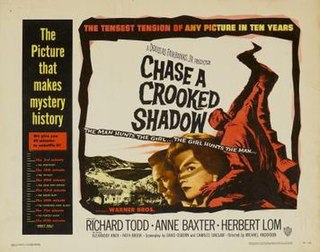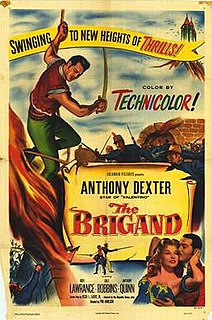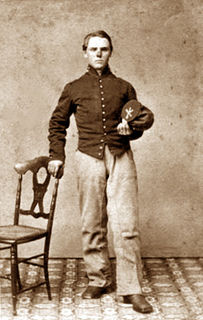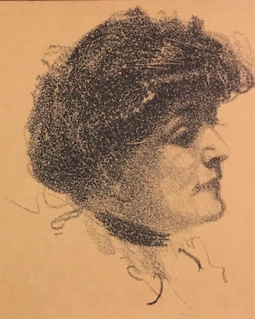Related Research Articles

Edward Harrison Norton is an American actor and filmmaker. He has received numerous awards and nominations, including a Golden Globe Award and three Academy Award nominations.
The year 1903 in film involved many significant events in cinema.

The Essanay Film Manufacturing Company was an early American motion picture studio. The studio was founded in 1907 and based in Chicago, and later had an additional film lot in Niles Canyon, California. Its stars included Francis X. Bushman, Gloria Swanson and studio co-owner, actor and director, Broncho Billy Anderson. It is probably best known today for its series of Charlie Chaplin comedies. In the 1920s, after it merged with other studios, it was absorbed into Warner Bros.

Pinkney "Pink" Anderson was an American blues singer and guitarist.

Wesley Wales Anderson is an American filmmaker. His films are known for their eccentricity and distinctive visual and narrative styles. Cited by some critics as a modern-day example of the work of an auteur, three of Anderson's films – The Royal Tenenbaums (2001), Moonrise Kingdom (2012), and The Grand Budapest Hotel (2014)– appeared in BBC Culture's 2016 poll of the greatest films since 2000.

Gilbert M. "Broncho Billy" Anderson was an American actor, writer, film director, and film producer, who was the first star of the Western film genre. He was a founder and star for Essanay studios. In 1958, he received a special Academy Award for being a pioneer of the film industry.

Edison Studios was an American film production organization, owned by companies controlled by inventor and entrepreneur, Thomas Edison. The studio made close to 1,200 films, as part of the Edison Manufacturing Company (1894–1911) and then Thomas A. Edison, Inc. (1911–1918), until the studio's closing in 1918. Of that number, 54 were feature length, and the remainder were shorts. All of the projects by this company had fallen into the public domain because they were released before 1925.

The Lubin Manufacturing Company was an American motion picture production company that produced silent films from 1896 to 1916. Lubin films were distributed with a Liberty Bell trademark.

Hazel Dawn was an American stage, film and television actress, and violinist. She was born to a Mormon family in Utah, and studied music in Europe where her father was a missionary. Dawn rose to fame as a stage actress in Ivan Caryll's 1911 Broadway production of The Pink Lady, which ran for over 300 performances and earned Dawn the eponymous nickname. She performed extensively on Broadway and began work in film in 1914, appearing in a total of 13 feature films. Dawn died at age 98 in New York City.

What Price Glory is a 1952 American Technicolor war film based on a 1924 play by Maxwell Anderson and Laurence Stallings, though it used virtually none of Anderson's dialogue. Originally intended as a musical, it was filmed as a straight comedy-drama, directed by John Ford and released by 20th Century Fox on August 22, 1952 in the U.S. The screenplay was written by Phoebe and Henry Ephron, and stars James Cagney and Dan Dailey as US Marines in World War I.

Tod Andrews was an American stage, screen, and television actor.

Lady Godiva of Coventry is a 1955 American Technicolor historical drama film, directed by Arthur Lubin. It starred Maureen O'Hara in the title role. Alec Harford, the English actor who portrayed Tom the Tailor, died eight months before the film's release.

Brewster's Millions is a 1945 American comedy film, one of many film adaptations of the 1902 novel of the same name by George Barr McCutcheon and the subsequent smash-hit play adaptation by Byron Ongley and Winchell Smith. In the novel, Brewster is a stockbroker; in this version, he is portrayed as a returning soldier.

Chase a Crooked Shadow is a 1958 British suspense film starring Richard Todd, Anne Baxter and Herbert Lom. Michael Anderson directed Chase a Crooked Shadow, the first film produced by Associated Dragon Films, a business venture of Douglas Fairbanks Jr.

The Brigand is a 1952 American adventure romance film directed by Phil Karlson. It is the second film that Anthony Dexter made for producer Edward Small for Columbia Pictures after his debut in Valentino.

The Master is a 2012 American psychological drama film written and directed by Paul Thomas Anderson and starring Joaquin Phoenix, Philip Seymour Hoffman, and Amy Adams. It tells the story of Freddie Quell (Phoenix), a World War II navy veteran struggling to adjust to a post-war society, who meets Lancaster Dodd (Hoffman), a leader of a religious movement known as "The Cause." Dodd sees something in Quell and accepts him into the movement. Freddie takes a liking to The Cause and begins traveling with Dodd's family to spread his teachings.

Charles W. Anderson was an American soldier who received the Medal of Honor for valor during the American Civil War.

Abroad with Two Yanks is a 1944 American comedy film directed by Allan Dwan and starring Helen Walker, William Bendix and Dennis O'Keefe as the title characters. It was Bendix's third and final role in a film as a US Marine and the first of Dwan's three films about the United States Marine Corps.

Zoe Anderson Norris was a Kentucky-born journalist, novelist, short story writer and publisher, known for her bimonthly magazine, The East Side (1909–1914), which focused on impoverished immigrants in New York. She also contributed to publications including The New York Times, New York Sun, Frank Leslie's Monthly, Harper's Weekly and Argosy. She investigated journalistic topics including corrupt charity executives and child abuse cases. Her fiction plots often centered around starving artists, women deceived by hypocritical suitors and farmers battling the elements. She founded the Ragged Edge Klub, a group of writers, filmmakers, politicians and performers who met for weekly dinners. She was considered "one of the most popular writers of newspaper sketches in the country" and known as a Queen of Bohemia.

Edward Haas Robins was an American actor.
References
- ↑ "New Film Companies". New York Dramatic Mirror. October 28, 1914.
- ↑ "Eaco Films Formed". Motography. September 19, 1914. Retrieved 2012-08-09.
- ↑ "That's How They Named It". New York Clipper. November 7, 1914.
- ↑ "Prominent in the Photo-Play World". The Photo-Play Review. September 25, 1915.